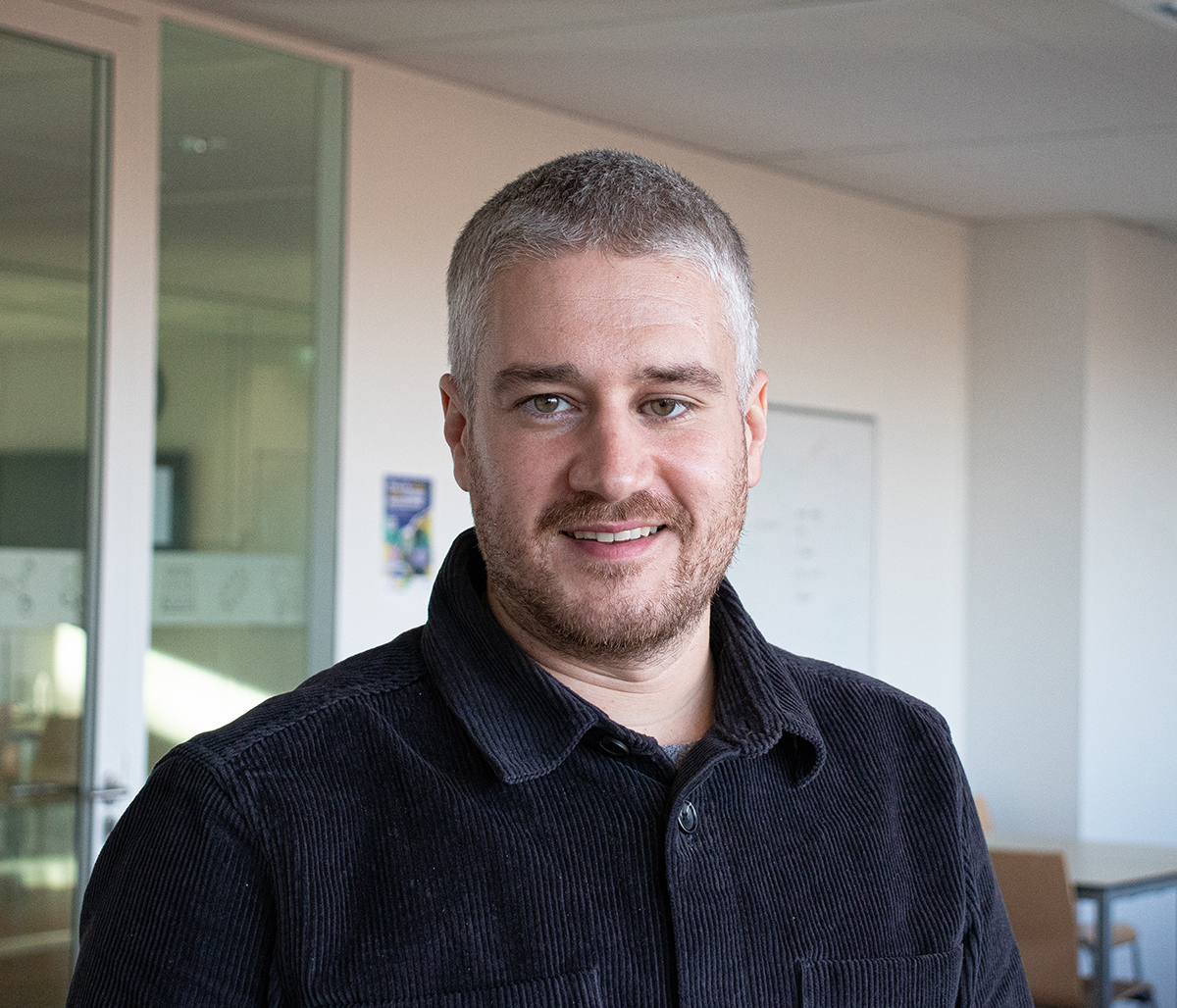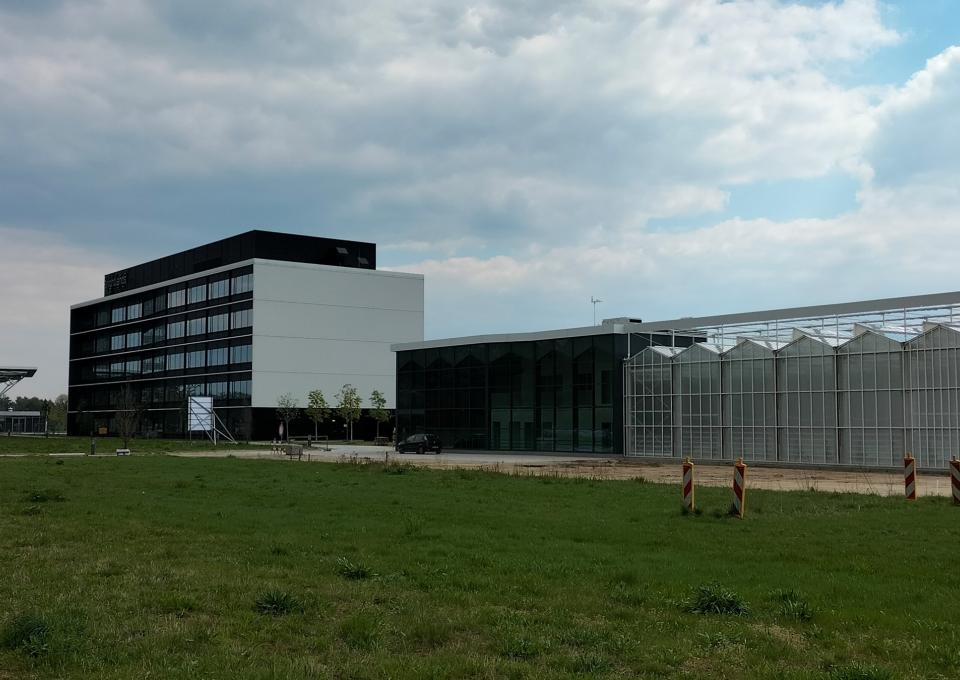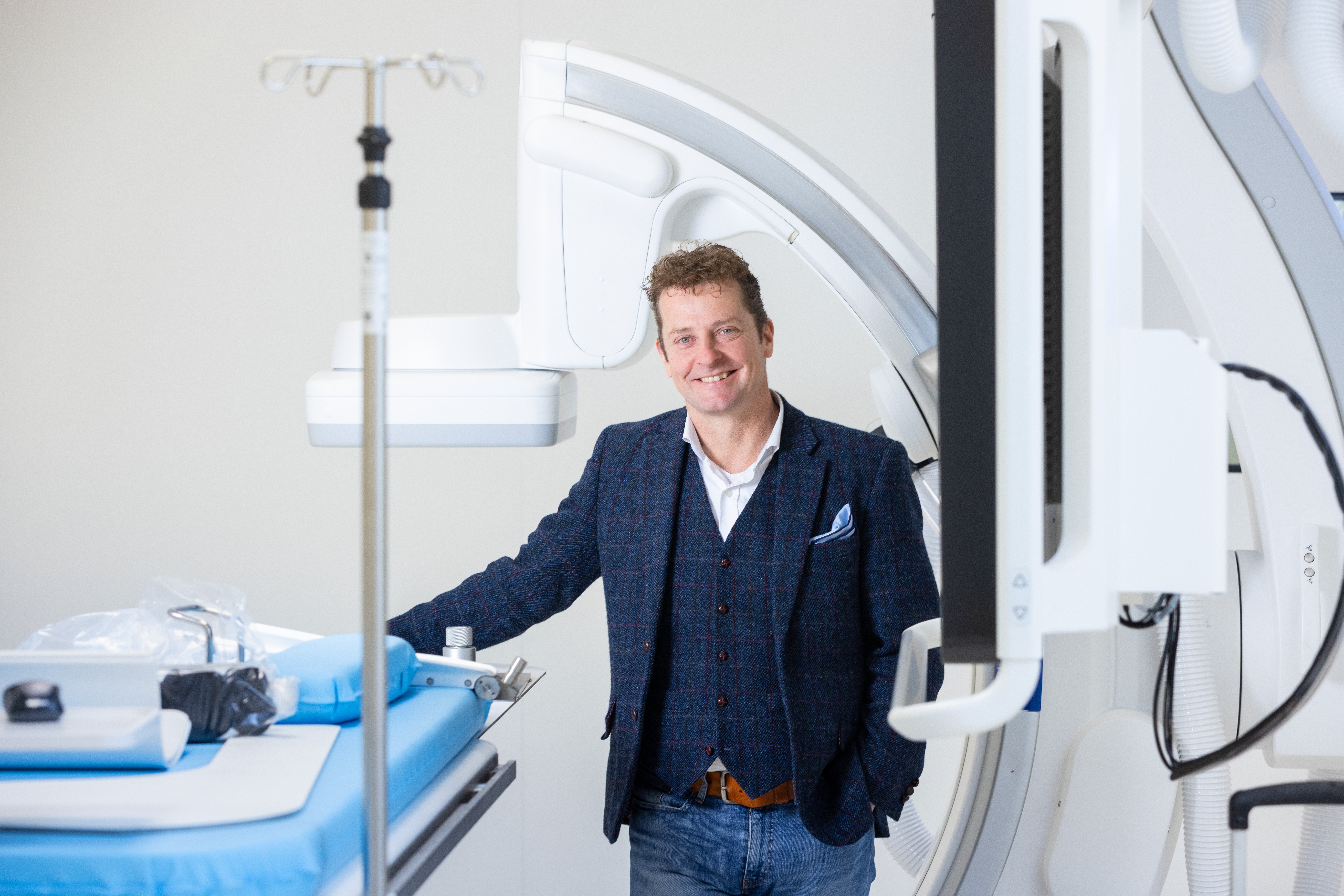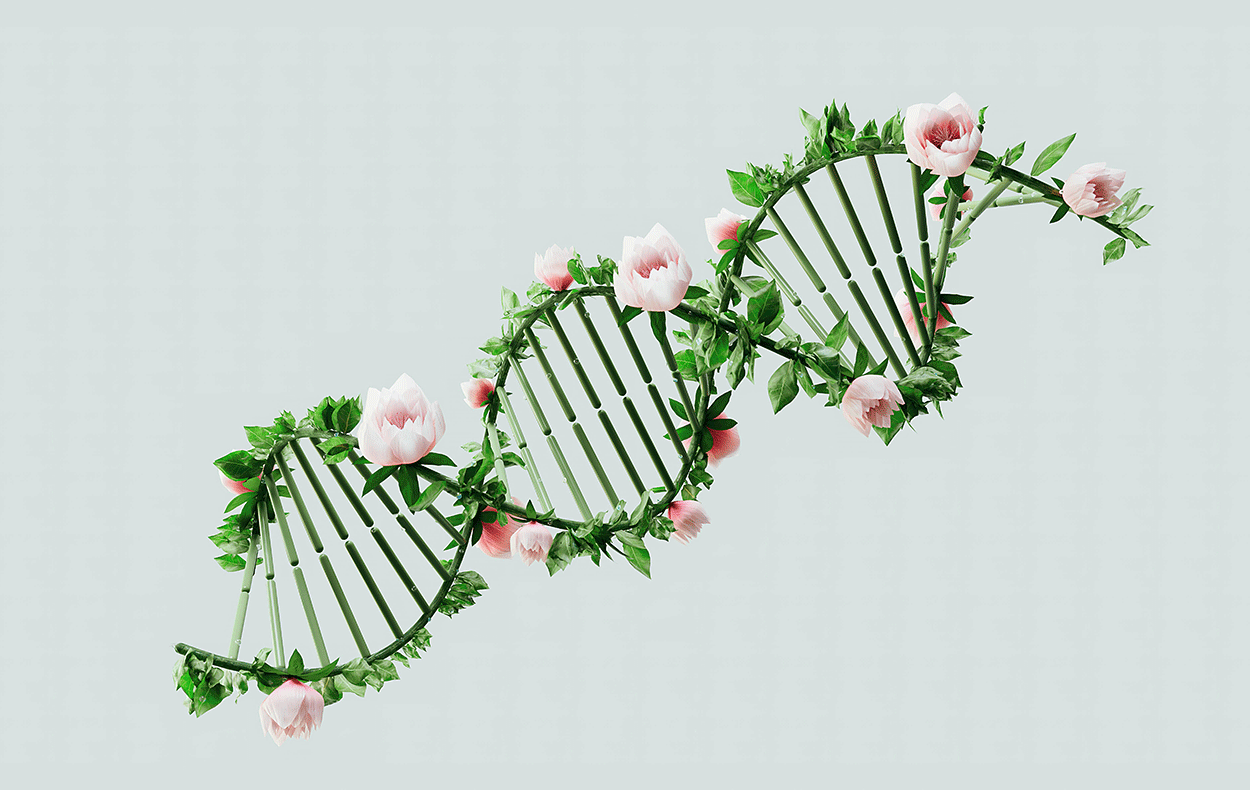Gavin Hazell: "I like that we try to train multidisciplinary generalist scientists"
Moving from the UK to Maastricht amidst a discussion on the internationalisation of Dutch higher education might be considered daring. Gavin Hazell did so because he loves the opportunities his new job as programme director at the Faculty of Science and Engineering offers him. His first impressions of our city and university make it all worthwhile.
“Drinking tea without milk is a crime”, Gavin Hazell says. Fortunately, this was the worst culture shock he experienced moving from the United Kingdom to the Netherlands. Until recently, he worked at the University of Chester, a city comparable in size to Maastricht. “We lived in nearby Liverpool”, Hazell says, “a city of over half a million people. My wife and I always wanted to live in a smaller city, like Maastricht.”

Next step
Apart from living in a smaller city, living in mainland Europe was high on their bucket list. “Because of the language, we quickly decided it would have to be in the Netherlands or in Scandinavia, where most people speak English.” When a position as programme director within the Faculty of Science and Engineering became available, Hazell successfully applied. “Becoming a programme director felt like a logical next step for me.” In Maastricht, he will be responsible for the master’s programmes in Systems Biology, Biobased Materials, and Imaging Engineering, all topics that fit his interests. In Chester, he was deputy director of the undergraduate programmes in chemistry, chemical engineering, and physics.
Hazell’s first impression of Maastricht University is quite good. “The university gave me a warm welcome. I am amazed by the sheer diversity of the science being done here. The scale of the facilities, like the Chemelot Campus, is impressive. I like to work with people, so I love the team-centred atmosphere.”
The educational system of Maastricht University is one of the things that excites him most, especially Project-Centred Learning. “In Chester, I already introduced it in some of the courses, but it is not widely implemented in the UK. In addition, the quality of education is really high. I like that we try to train multidisciplinary generalist scientists, not just chemists, engineers, or physicists.”
More students
What does he want to achieve in Maastricht? “I want to leave my mark on the programmes in terms of growing numbers of students and possibly by expanding the programmes as well. Take Imaging Engineering for instance. I would like the number of students to get up to 25. I visited their laboratories recently. What they do with their unique equipment is amazing. We should shout it from the hilltops.”
Hazell believes it certainly should be possible to attract more bachelor students to this exciting programme. “Including from our own bachelor’s programmes like the Maastricht Science Programme and Circular Engineering.”
Dutch
Of course, his goal of attracting more students from Dutch universities touches upon the national discussion about internationalisation. Did he know about this topic before he moved to the Netherlands? “To be honest, I did not know about it. But I became acutely aware when I arrived here.” Would it have affected his decision to accept the job if he had known in advance? “Well, I chose Maastricht University because of the opportunities here; I want to be part of it. If I had known, it probably would not have affected my decision. I have already signed up for a language programme. I love learning languages, and there is no better way to do so than by immersing yourself in them.”
Exploring
For the past few weeks, Hazell and his wife, “my partner in crime in exploring as much as possible of the Netherlands, Belgium, Germany, and France”, have lived in Maastricht. Their first impression of the city is great. “We like cinema and discovered Lumière. Fortunately, movies are subtitled in the Netherlands, which is also a great way to learn a language. We discovered that Maastricht is considered the food capital of the Netherlands. We are foodies, and we are blown away by the quality of the food here. The beers, especially the Belgian ones, however, are a little bit too strong for my taste. A typical British ale only has 3.5% alcohol.”
For now, Hazell is familiarising himself with our university and his colleagues. “If you are involved in the programmes and want to talk to me, you’ll find my door always open.”
Also read
-
Over the next four years, four young researchers can start research into crop biotechnology and engineering, thanks to the collaboration between Radboud University and Maastricht University. The researchers will start work at the Brightlands Campus Greenport in Venlo, halfway between the two...
-
Lee Bouwman, a vascular surgeon and endowed professor of Clinical Engineering, specialises in the implementation of groundbreaking healthcare technologies. The key to success, he says, lies in the collaboration between engineers and clinicians. This approach has already resulted in a range of...
-
Researchers from across the world have mapped the genetic relationships of the majority of flowering plant genera. Maastricht University helped with this massive effort, which completes the evolutionary tree of life of plants like never before. The famous scientific journal Nature published their...


